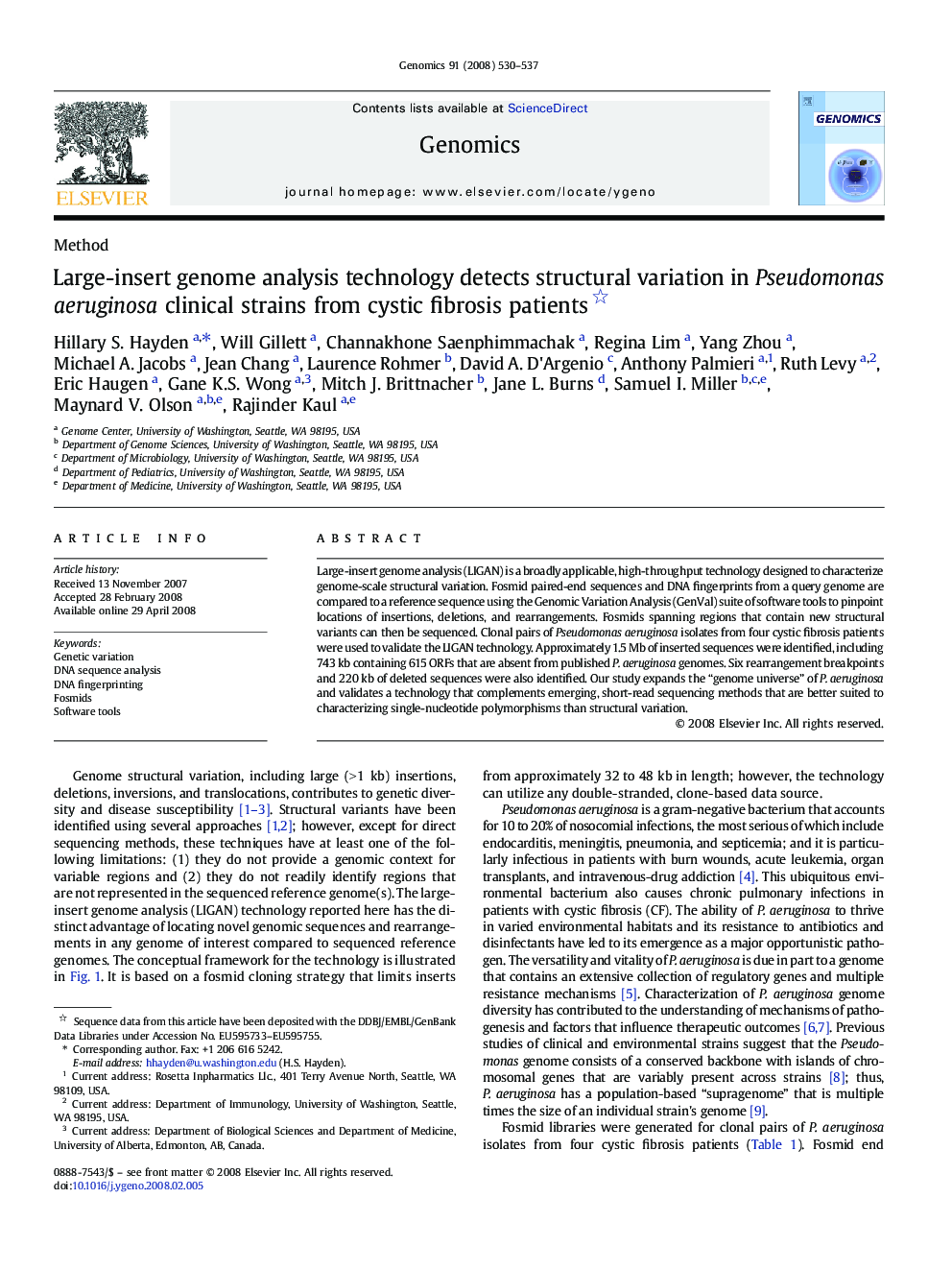| Article ID | Journal | Published Year | Pages | File Type |
|---|---|---|---|---|
| 2820906 | Genomics | 2008 | 8 Pages |
Large-insert genome analysis (LIGAN) is a broadly applicable, high-throughput technology designed to characterize genome-scale structural variation. Fosmid paired-end sequences and DNA fingerprints from a query genome are compared to a reference sequence using the Genomic Variation Analysis (GenVal) suite of software tools to pinpoint locations of insertions, deletions, and rearrangements. Fosmids spanning regions that contain new structural variants can then be sequenced. Clonal pairs of Pseudomonas aeruginosa isolates from four cystic fibrosis patients were used to validate the LIGAN technology. Approximately 1.5 Mb of inserted sequences were identified, including 743 kb containing 615 ORFs that are absent from published P. aeruginosa genomes. Six rearrangement breakpoints and 220 kb of deleted sequences were also identified. Our study expands the “genome universe” of P. aeruginosa and validates a technology that complements emerging, short-read sequencing methods that are better suited to characterizing single-nucleotide polymorphisms than structural variation.
